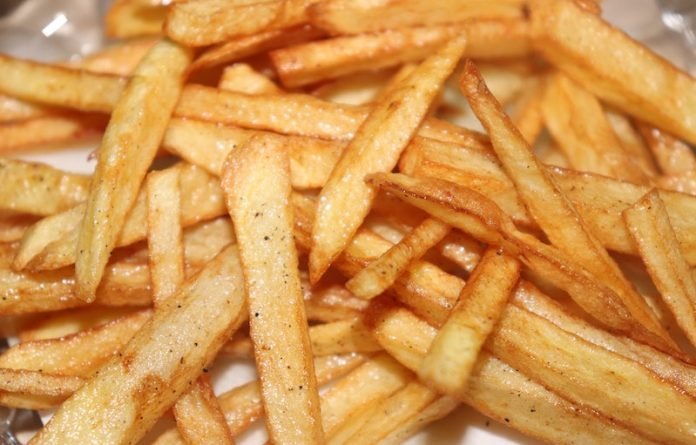
In a study from the University of Kansas and elsewhere, scientists found clearer guidance about the food people can put on their plates to lose weight.
In the study, the researchers sought to determine what characteristics of meals were important for determining how many calories were eaten.
They found that three meal characteristics consistently led to increased calorie intake across four different dietary patterns: meal energy density (i.e., calories per gram of food), the amount of “hyper-palatable” foods and how quickly the meals were eaten.
The protein content of the meals also contributed to calorie intake, but its effect was more variable.
Hyper-palatable foods have specific combinations of fat, sugar sodium and carbohydrates—think of potato chips—that make them artificially rewarding to eat and harder to stop consuming.
In the study, the team wanted to know how hyper-palatable characteristics of foods, in combination with other factors, influenced how many calories a person consumed in a meal.
They suggest that hyper-palatability increased the amount of energy consumed across four diet patterns: low-carbohydrate, low-fat, a diet based on unprocessed foods and one based on ultra-processed foods.
Diet recommendations for weight management could be informed by understanding how some foods result in people eating fewer calories without making them hungry.
People are often advised to avoid energy-dense foods, such as cookies or cheese, that can lead to passive overeating. Instead, foods low in energy density—like spinach, carrots and apples—are often advised.
But foods characterized as hyper-palatable may be less familiar to people, and they may unknowingly add them to their plates.
While hyper-palatable foods are sometimes also energy dense, the new study suggests that these hyper-palatable foods independently contribute to meal calorie intake.
the findings add to a growing body of research that shows that hyper-palatability plays a role in the food choices that people make and in their weight.
If you care about weight loss, please read studies that one avocado per day does not reduce belly fat, and ginger could help improve weight loss and blood sugar.
For more information about wellness, please see recent studies that zinc could help reduce COVID-19 infection risk, and results showing coffee, with sugar or not, linked to lower death risk
The study was conducted by Kevin D. Hall et al and published in Nature Food.
Copyright © 2023 Knowridge Science Report. All rights reserved.



